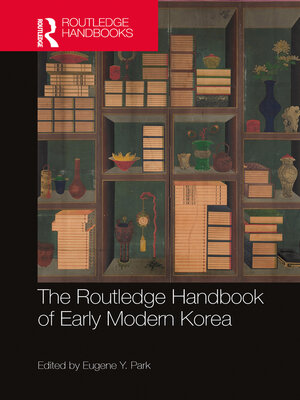
Sign up to save your library
With an OverDrive account, you can save your favorite libraries for at-a-glance information about availability. Find out more about OverDrive accounts.
Find this title in Libby, the library reading app by OverDrive.



Search for a digital library with this title
Title found at these libraries:
| Library Name | Distance |
|---|---|
| Loading... |
Korea is a historical region of prominence in the global political economy. Still, a comprehensive overview of its early modern era has yet to receive a book-length treatment in English. Comprising topical chapters written by 22 experts from 11 countries, The Routledge Handbook of Early Modern Korea presents an interdisciplinary survey of Korea's politics, society, economy, and culture from the founding of the Chosŏn state (1392–1897) to 1873 when its political leadership began preparing for treaty relations with Imperial Japan, the United States, and other Western nations.
Chosŏn mirrors shared historical patterns among literate sedentary societies of early modern Afro-Eurasia. Various long-term developments that shaped early modern Korea include the completion of centralized bureaucratic governance as codified in the State Administrative Code (Kyŏngguk taejŏn); the appearance of regular rural marketplaces facilitating transactions in an increasingly liberalized economy; continuity of an aristocracy (yangban) from the medieval period (Koryŏ: 918–1392); a decreasing correspondence between ascriptive status and socioeconomic class; and the state and the elite's growing interest in encyclopedic knowledge and its dissemination while their monopoly on knowledge production weakened.
This handbook provides historical context for readers wishing to know more than just the "Korea" that evokes K-pop or North Korea's nuclear weapons, while Hyundai, Samsung, and other South Korean brands have gained visibility in everyday life. Interested English-speaking scholars, educators, students, and the general public without access to the large body of Korean-language works on Chosŏn will find this book a valuable critical introduction to early modern Korea.







